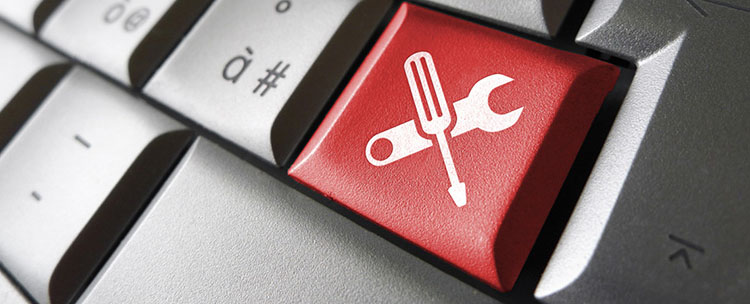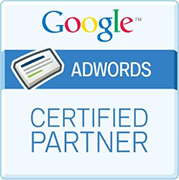When creating a website for your business, there’s a neverending catalogue of issues to bear in mind.
From financial considerations and questions relating to style and design, to longer-term issues pertaining to hosting and maintenance, the whole project can start to look a bit daunting and dizzying.
This can be especially true for small business owners, who don’t exactly have vast amounts of spare time at their disposal.
To make the process easier for you, we’ve broken it down into nine points of consideration.
1. Cost

So, this might very well be your first question, and for good reason. If your business is just starting out, or your budget is fairly constrained, it might be that this question is the most critical, if not an actual deal-breaker.
When it comes to web design, cost can vary wildly. The answer is dependent on a huge number of factors.
It sounds incredibly obvious, but not all websites are the same. They serve multiple purposes, feature different technologies and levels of functionality and design, and can therefore vary significantly in terms of cost. This will be determined by your individual business needs, and how complex the project is.
Some preliminary questions to help you work out the cost:
- Do you already have a website? Will this be a redesign of an existing site, or a brand new one?
- Do you need a website or an online store?
- Have graphics already been created for the site?
- Do you need a blog?
- Do you need a CMS (Content Management System)?
- Have you written the content (or are you able to)?
- Do you want the site to automatically resize for mobile devices?
- Do you need any multimedia elements?
- Who will be maintaining the site after it has gone live?
- What about hosting?
Do you need other additional features such as social media channels or digital marketing devices like SEO (Search Engine Optimisation) and PPC (Pay Per Click)?
2. Research

Because so much rides on your business’s website – and because it’s likely that this will be a significant investment for you – It’s crucial to thoroughly research your options before embarking on the design project.
If you’re hiring a web design company – and this option is really a no-brainer unless you’re a design and development wizard yourself – there are a number of ways to ensure that the agency you go with is reputable, experienced and equipped to handle your needs.
Some things that will point towards a trustworthy agency:
Testimonials: A credible web design company will have positive customer reviews. Ideally, these will be displayed in a prominent place like their website, or on a reviews board like Which Web Design Company (wwdc). Failing that, they should be able to point you in the direction of satisfied clients you can speak to.
Examples: Playing into similar principles of trust and credibility, a reliable web design agency will be able to show you examples of work they’ve done in the past. Preferably, this will be with clients whose needs are similar to yours in terms of project complexity, industry, and business type. This will also give you an opportunity to work out if you actually like the look and feel of their work, because it’s likely yours will be similar in style. Take note of features and design elements you like – your site can be designed with these in mind.
Experience and expertise: Investigate the track record of the web design company, especially in terms of their experience with businesses like yours (and projects like the one you’re after). You can also take this further by contacting a few of their clients to see if they were pleased with the process and the end result. A solid agency should be happy to provide you with the details with which to do this.
3. Communication

A fluid web design project that falls within a given timeframe is heavily dependent on successful, effective communication with your design company. Your ability to conduct a healthy professional relationship with the company is therefore something you should try to assess early on.
A lot of this will come down to chemistry, and how responsive, empathic, and genuinely interested they are.
A good web designer should be receptive to your needs. They shouldn’t just be all about talking, either – they should be skilled at listening to your own ideas in terms of how you envision the end result, your website goals and purpose, what your brand looks like, and your marketing plan.
A skilled web designer should ask you lots of questions, especially before they actually start working on your project. You should expect a flood of questions about your business objectives and plan, industry, competitors, clients, and target audience.
These kind of questions should start during the initial sales phase – before you actually agree to work with them – and then continue throughout every point of the process for the whole duration of the project.
Here are some questions that are likely to come up if you’re dealing with someone who knows what they’re doing and is receptive to your requirements:
- What are your goals for your site?
- What purpose do you want your site to serve?
- Is this likely to change over time?
- Describe your typical customer
- Who is your target audience?
- Who are your major competitors?
- Describe your brand
- Will you be able to provide content for the site?
- Will you be able to provide images, a logo, etc.?
- Are you doing any traditional marketing?
- What kind of marketing are you interested in doing? Are you already on social media?
4. Hosting, maintenance and support

Before hiring a web design company, it’s vital to ascertain what will happen once the project is completed in terms of hosting and support.
What will happen if your website breaks (and, well, they do sometimes)? What process will you follow if anything goes wrong? Who owns your domain name? What kind of quality of support will be available to you, and at what extra cost? How often?
Moreover, how will changes be made to the website over time? Something worthwhile to consider here is to have your site built on a CMS to allow for simple, stress-free self-management and maintenance.
A CMS will make it easy for you to edit, modify and update the website yourself after it has been built – to edit, add and deleted images, for example, as well as many other functions. Some well-known CMS platforms include WordPress, Joomla and Drupal.

5. Design

It goes without saying that your website needs to be visually appealing, attention-grabbing, easy to use, and unique.
Sounds like a tall order, right? Well, in a hyper-competitive market, you need to be able to cut through the noise and maintain an edge over your competition, and design is one of the most crucial (and immediately visible) ways of doing this.
Some of the most important elements to bear in mind:
Mobile compatibility: With mobile browsing becoming increasingly commonplace, it’s essential that your website is compatible on a range of devices, from laptops and desktop computers, to tablets and smartphones.
Customisation: It may seem easier and cheaper, but a pre-made generic template is not going to do you any favours. Like the businesses they represent, every website is different. As such, they need to be able to reflect the personality and uniqueness of your company. A customised web design will ensure that your website stands out from that of your competition, and is easily found on search engines like Google.
Simplicity: When it comes to web design, simplicity is generally the best policy, if not actually key. This doesn’t mean that you should banish all elements of creativity and innovation – like we said, it’s so important for your site to be unique (and frankly, being the same as everyone else is just boring). However, what this does mean is eliminating everything superfluous. In web design, simplicity means clear navigation, no clutter, clean typography, crisp logos, a minimal colour scheme, and sharp copywriting that makes use of as few words as possible.
Images: Images are immensely powerful in web design – and can be highly effective in evoking particular moods and emotions – but not all images are created equally. Ensure that you optimise the images you use, avoid oversized or tiny images, and use them judiciously – make sure they serve a purpose and that they’re actually relevant. Avoid cheesy stock images and whenever possible, try to show personality – as with everything design-related, your website images should reflect who you are as a brand and should convey an appropriate message.
6. Development

To give you as much control and flexibility as possible, your website should be built with open-source software, not proprietary.
What does this mean?
Essentially, open-source software uses a source code that’s available for alteration by anyone. Generally speaking, this means that in a less than optimal situation – if, for example, you end up ditching your web developer and want to take your business elsewhere – you will be able to go to another provider who will know how to program the site.
However, if your site was built with proprietary software, no-one else would be able to work on the site.
7. Marketing

A well-designed, accessible website is a great start in establishing an online presence for your business and your brand. In fact, it’s indispensable in moving your business forward. But that’s just the first step. Now you need to be able to work out how you’re going to attract visitors and convert leads.
In this fierce digital climate, businesses are pretty much all online as a matter of course, so you need something more to provide you with an edge over your competition, to generate traffic, and to actually convert leads. So, while a visually appealing, user-friendly website is crucial, it should be combined with a sound marketing plan in order to maximise your business’s potential.
Digital marketing campaigns like SEO, PPC, social media marketing and copywriting are essential for extending the visibility and reach of your business and drawing customers. Some of these channels, like SEO and PPC, are specifically geared towards making you as visible as possible on search engines on Google, ensuring that you’ll actually be found.
8. Content

A great website will lose its impact if it’s plastered with poorly written content. Don’t fall into the trap of underestimating the importance of well-crafted words: high-quality website content is equally, if not more, important than a site’s appearance.
Engaging, sharp content is essential in terms of captivating your audience’s attention, keeping visitors on your site, and establishing your business as an authority in its field. Your content should come be engaging, relevant and original, and it needs to showcase the benefits of your products or services (and, of course, be able to promote your brand itself). It should tell a story about your business, evoking an emotional response in your visitors.
Your site’s content should also be regularly updated to show customers that your business is active, engaged and current, and it should make it easy for you to be found on Google through the strategic use of relevant keywords and phrases that are placed within the body of your website’s text.
However, unless you are a wizard of words yourself – and, ideally, have a background in marketing and content development – writing your own content can be a risky venture. Poor spelling or grammar – even small typos – can look unprofessional and sloppy, and will do very little for the trust and credibility you want to inspire. Creating the right “voice” for your brand is also no small task.
Because the stakes are so high, it’s a far better idea to engage the services of a professional copywriter, who will be able to make your business stand out, maximise your findability and visibility, and ensure that every word is perfect.
9. Leaving it to the experts

Some (rather enviable and irritating) people are just good at everything. You know the type we mean. But we can’t all be polymaths. Generally speaking, what you’re going to be best at is running your own business. Not running your own business and mastering years of experience and expertise in web design and development. Because frankly, you’re not a superhero.
Designing a website for your business is one of those occasions where it really pays to defer to the knowledge of an expert. If you had no personal training or expertise in troubleshooting complex plumbing issues, would you attempt to fix one yourself? Hell, no. That would be potentially disastrous and hugely time-consuming (and, well, more than a little gross). So why would you attempt a DIY fix in a web design situation?
Ultimately, with a website that’s created by an expert, you get a site that’s customised to suit your business needs, industry and audience. You get a site that stands out as unique and one which can be easily found by search engines and by the right customers. You get a site that’s designed to be user-friendly, intuitive, visually appealing and attention-grabbing. You also get ongoing support in case something goes wrong.














Get posting!
If you need some help from a social media specialist, talk to one of our experts today – if you are a current client, call 1300 883 639 – call (213) 634-1668 if you are a new client.







